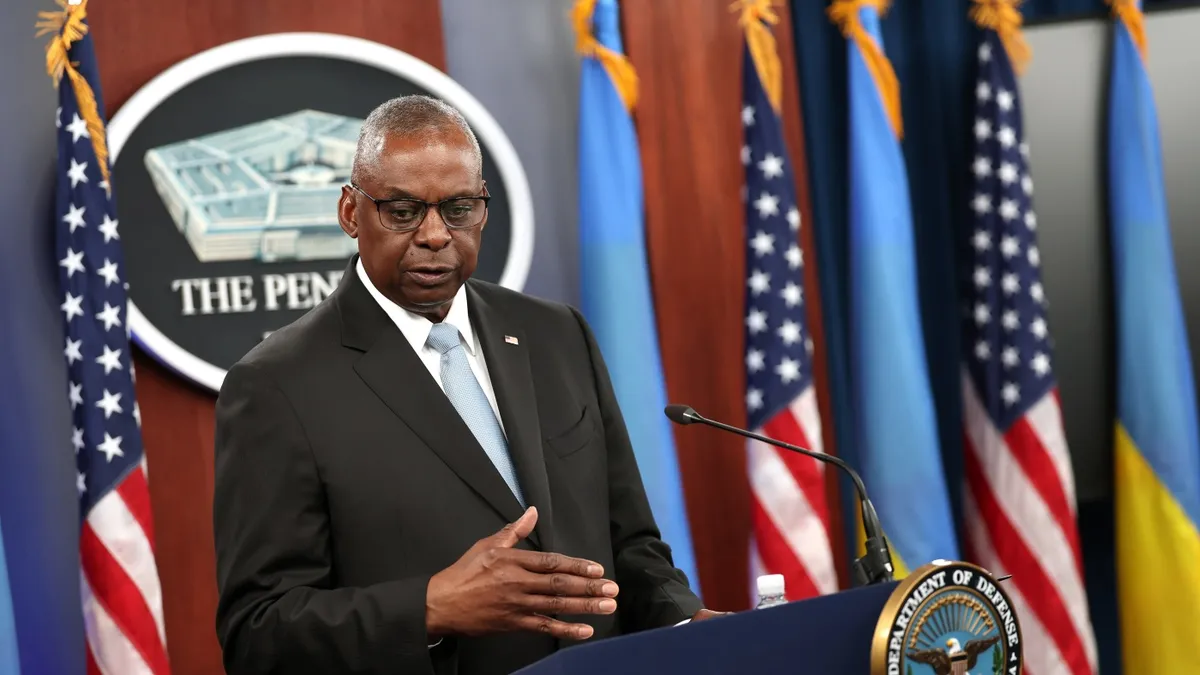
In a divided ruling, a federal appeals court panel has annulled the plea agreements reached with three men accused of orchestrating the 9/11 attacks. This decision further complicates the already intricate legal situation surrounding the long-stalled case. The defendants, including the alleged ringleader Khalid Sheikh Mohammed, are now deliberating whether to appeal this decision to the full federal bench or the U.S. Supreme Court.
The core issue before the U.S. Court of Appeals for the D.C. Circuit was whether former Defense Secretary Lloyd Austin acted within his legal rights when he rescinded the plea deals just two days after they were announced last summer by a military court in Guantánamo Bay, Cuba. Austin claimed that the agreements, which would have allowed the 9/11 defendants to plead guilty in exchange for sentences of up to life in prison, took him by surprise. His intention was to advance the case toward a death-penalty trial.
Defense attorneys expressed skepticism over Austin's assertion of being blindsided by the plea deals, emphasizing that negotiations had been ongoing for over two years. They pointed out that government prosecutors had previously stated that settlement agreements would be the optimal resolution for the 9/11 case, which has been dragging on for more than two decades without a trial. The defense team further argued that since Austin had delegated the authority to approve plea deals to a military court official, he could not simply rescind the agreements based on personal disapproval of their terms.
Both a military court judge and a military appeals panel initially supported the defense’s argument, concluding that Austin acted too late and beyond his authority by attempting to reverse the agreements post-facto. However, on a recent Friday, a 2-to-1 vote by a three-judge panel of the federal appeals court, which included Obama appointees Patricia Millett and Robert Wilkins, along with Trump appointee Neomi Rao, overturned those lower-court decisions. This higher court determined that Austin indeed possessed the legal authority to cancel the plea deals.
Judge Wilkins, who had previously indicated that he found the government's case weak, dissented from the majority ruling. In his dissent, he expressed confusion over his colleagues' conclusions, suggesting they were disregarding the long-standing principle of deference to the military justice system. He emphasized that the government had failed to prove that the military judge erred in his initial ruling.
The defendants are now faced with crucial decisions regarding their legal strategy. They can choose to appeal the ruling to the full appeals court, take their case to the U.S. Supreme Court, or potentially pursue both options. Matthew Engle, an attorney for 9/11 defendant Walid bin Attash, stated that they are currently evaluating their options and will determine their next steps after consulting with bin Attash.
The ongoing legal battles have caused significant frustration among families of 9/11 victims. Many have expressed their exasperation at the case being mired in pre-trial hearings for years while the defendants remain incarcerated at Guantánamo, legally innocent. Elizabeth Miller, whose father perished in the 9/11 attacks, voiced her frustration, stating, "the main theme is waiting, waiting, waiting." She advocates for a plea deal, fearing that the protracted legal proceedings may never reach a resolution.
Conversely, another family member, Brett Eagleson, whose father died in the World Trade Center collapse, viewed the court's ruling as a victory. He emphasized the necessity of a trial, stating, "as Americans, as humans, we have the right for justice, and that's how we get the truth." Both prosecutors and defense attorneys have indicated that if the plea deals do not proceed, the 9/11 case could extend for many more years, potentially until 2050, according to one defense lawyer.